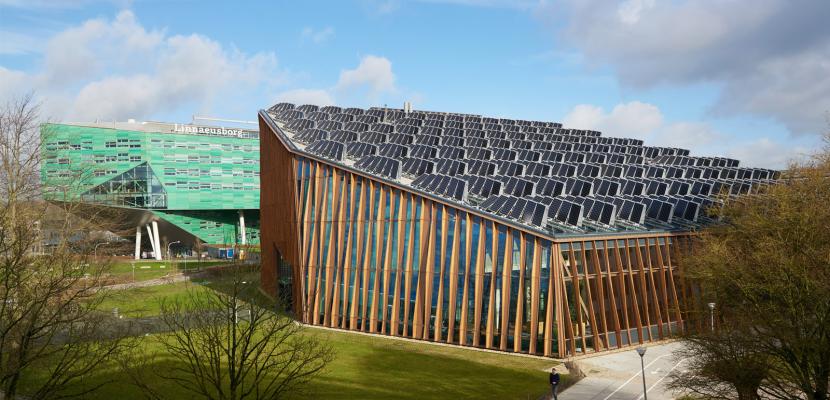Image

From fear of losing jobs in the region, into a front-runner cluster in the energy transition
Published on 28 May 2019

Netherlands
This is the good practice's implementation level. It can be national, regional or local.
About this good practice
The reason to create the cluster Energy Valley in 2003 (from 2018: part of New Energy Coalition) was exceptional. Governmental institutes feared a decrease in economic activity and employment in the energy sector due to the forthcoming liberalisation of the energy market. Energy Valley was founded with the goal to create jobs by shifting towards a sustainable energy sector. The cluster mobilised the sector, adding big companies like Gasunie, SMEs, knowledge- and governmental institutes. From that moment on, it worked on the energy transition, an emerging topic at that time. The cluster realised important crossovers between worlds of electricity and gas. Later on they included green gas, wind-power, hydrogen and cross sectoral development between energy and water technology. The impact of the cluster increased.
In 2018 Energy Valley merged with Energy Delta Institute and Energy Academy Europe into NEC, which expanded the work. The concept of the cluster is to use its organisational ability, linked to ‘transition’ and ‘system integration’ and connect worlds. NEC plays a linking role between stakeholders to tackle the cross-border societal challenge through a holistic approach with concrete collaboration within projects with European organisations.
ERDF was one of the funds that enacted these developments. In the Smart Specialisation strategy of the Northern Netherlands the societal challenge ‘Reliable, Clean and Efficient Energy’ is prominent and NEC is contributing greatly.
In 2018 Energy Valley merged with Energy Delta Institute and Energy Academy Europe into NEC, which expanded the work. The concept of the cluster is to use its organisational ability, linked to ‘transition’ and ‘system integration’ and connect worlds. NEC plays a linking role between stakeholders to tackle the cross-border societal challenge through a holistic approach with concrete collaboration within projects with European organisations.
ERDF was one of the funds that enacted these developments. In the Smart Specialisation strategy of the Northern Netherlands the societal challenge ‘Reliable, Clean and Efficient Energy’ is prominent and NEC is contributing greatly.
Expert opinion
The good practice shows how continuous institutional leadership can structure a regional innovation ecosystem. The New Energy Coalition (NEC) is an example of a cluster that is supporting energy transition in the Northern Netherlands. The cluster was created from the joint public-private leadership to respond to increase competition from external actors in the energy market. The cluster’s mission is to respond to the societal challenge of energy transition in the regional S3—Reliable, Clean and Efficient Energy. The good practice points out the importance of continuous institutional leadership over a long period of time to structure a network and build scientific and technological capacities. The good practice offers many insights on how to implement a S3 priority around a societal challenge.
Works at
Interreg Europe Policy Learning Platform
Resources needed
Establishment costs: 2.1 million of which €567.000 ERDF. Main finance shifted from 2/3rd governmental/subsidy money, 1/3rd business/university money to 10% governmental and 90% from i.a. EU funded projects, private entities and commercial activities.
FTEs at NEC is 50, Energy Valley started with 2.
FTEs at NEC is 50, Energy Valley started with 2.
Evidence of success
Energy Valley started with 7 main financial partners and NEC currently has 21. Adding the platform of members, at its peak it was around 250 and with the relations of their broad network, it’s thousands.
NEC is a desired participant and co-initiator in (European) projects, e.g. Energy Transition Park Drenthe, MAKING-CITY and North Sea Energy. The cluster contributed to a great extent to the public debate in putting energy transition high on the regional agenda.
NEC is a desired participant and co-initiator in (European) projects, e.g. Energy Transition Park Drenthe, MAKING-CITY and North Sea Energy. The cluster contributed to a great extent to the public debate in putting energy transition high on the regional agenda.
Potential for learning or transfer
1. How as a region (MA) to handle a broad cross-border topic like energy transition.
2. How to use ERDF programming in a regional setting to gain most knowledge and experience with a worldwide relevant topic.
3. How to use ERDF programming to connect worlds or disciplines with each other (crossover in- and outside a sector) that normally wouldn’t, like water and energy.
4. How to identify the strong competences of your region and build on this via your Smart Specialisation Strategy
6. How to set up a Smart Specialisation Strategy built on societal challenges and programme ERDF(/other funds) on this.
2. How to use ERDF programming in a regional setting to gain most knowledge and experience with a worldwide relevant topic.
3. How to use ERDF programming to connect worlds or disciplines with each other (crossover in- and outside a sector) that normally wouldn’t, like water and energy.
4. How to identify the strong competences of your region and build on this via your Smart Specialisation Strategy
6. How to set up a Smart Specialisation Strategy built on societal challenges and programme ERDF(/other funds) on this.
Further information
Website
Good practice owner
You can contact the good practice owner below for more detailed information.
Organisation
New Energy Coalition

Netherlands
Groningen
Contact
Project Partner
